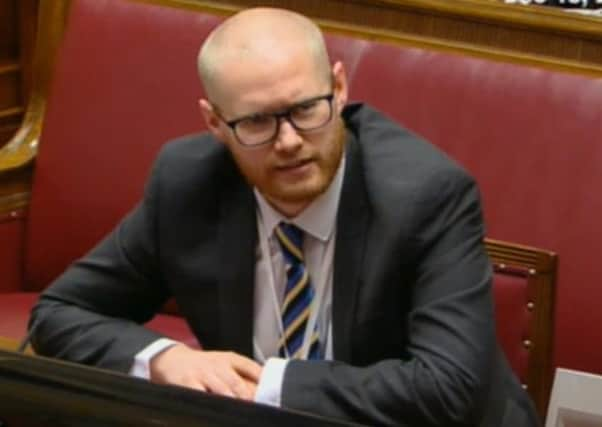Key RHI official: we should have given warnings to Arlene Foster


Peter Hutchinson made the comment yesterday evening at the end of a mammoth session in front of the public inquiry into the scandal which played a critical role in toppling Mrs Foster as first minister.
Mr Hutchinson, a deputy principal grade civil servant who was running the renewable heat branch with the Department of Enterprise, Trade and Investment (DETI), faced more than 15 hours of questioning over three days.
Advertisement
Hide AdAdvertisement
Hide AdAfter a forensic examination of his actions, inquiry chairman Sir Patrick Coghlin distilled into one question a series of facts which have emerged.
Asking about the decision to press ahead with opening the scheme in November 2012 without cost controls of any kind or an emergency power to suspend the scheme, Sir Patrick put it to Mr Hutchinson that there had been three points prior to the launch of the Stormont scheme when some of the critical problems with it had been raised.
Sir Patrick said that Mr Hutchinson and his team had been given a “rationally and closely reasoned” document from Whitehall which alerted them to the fact that it was moving to put in place a power to suspend the GB scheme “at a time when the take up in GB was very low, so it wasn’t a concern other than that a safety mechanism, they felt, was needed in the circumstances”.
The retired Appeal Court judge went on: “You then had a very firm and clear warning from Ofgem, people whom you were relying on for expertise, that you should wait and then incorporate whatever was in the GB emergency power to suspend into your regulations”.
Advertisement
Hide AdAdvertisement
Hide AdSetting out the third point at which the issue was explicitly raised with the department, Sir Patrick said: “When you sent your regulations to Arthur Cox, the solicitors ... they had the same reaction: that you ought to look and see if you wanted to incorporate this emergency power from GB.
“You obviously were concerned about time and about perhaps the possibility of not taking the full financial advantage of the 2011 and 2012 budget from the Treasury.
“You told Ofgem that you had a commitment from your minister that these would have to go through without such an amendment.”
Mr Hutchinson interjected to say that Ofgem had been told that there was a commitment with the minister to have the scheme launched by a certain date.
Advertisement
Hide AdAdvertisement
Hide AdSir Patrick continued: “Yes. And that would have meant that you would not have the power to suspend in it ... whatever way you look at it, this was a difficult decision because of the external, properly rationed, properly reasoned advice you had. Did it got to the minister?”
Mr Hutchinson said: “There’s no formal submission on that, no, I don’t think there is.”
Sir Patrick said that “the obvious question had to be ‘why?’”, to which Mr Hutchinson replied: “I think that’s a fair question. I think it was just decided at that level [by officials] ...”
Sir Patrick asked whether it ought to have gone to the minister to which Mr Hutchinson responded: “Yes, I think that’s fair.”